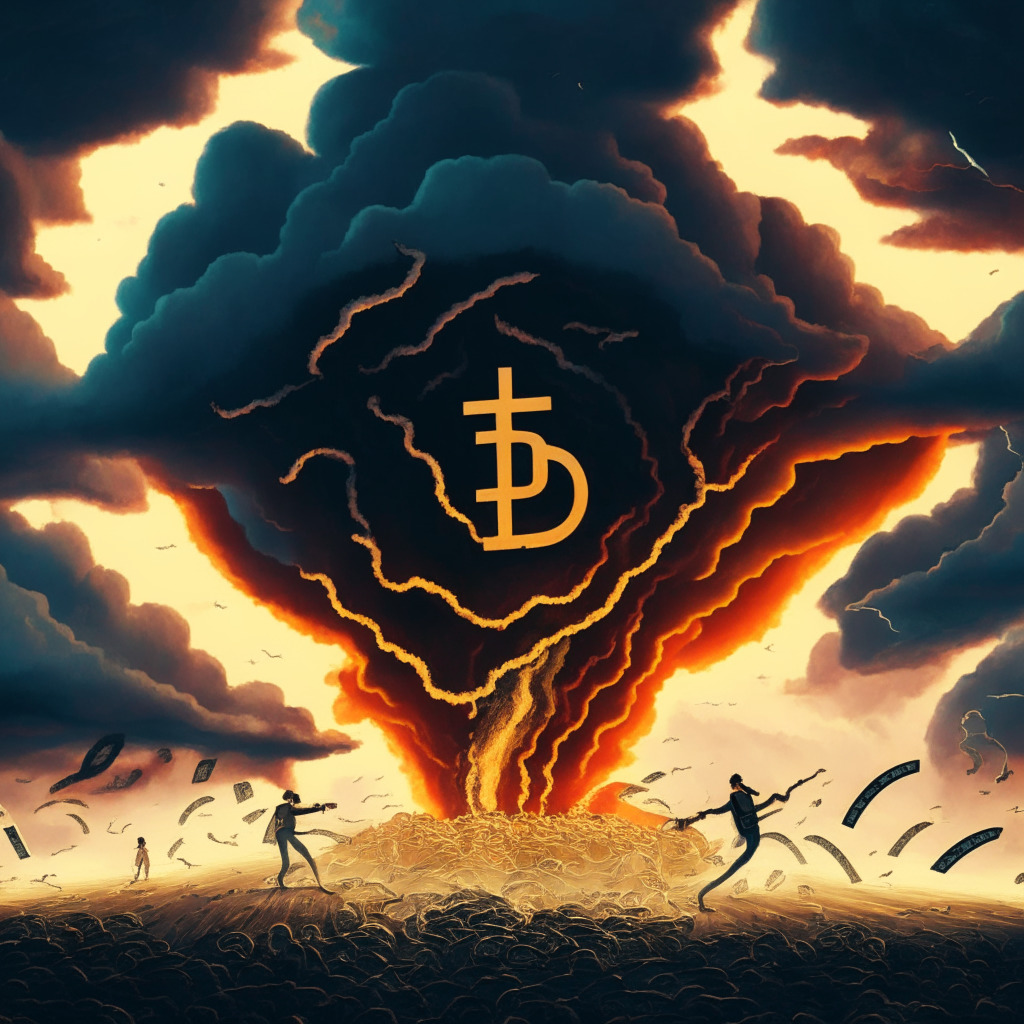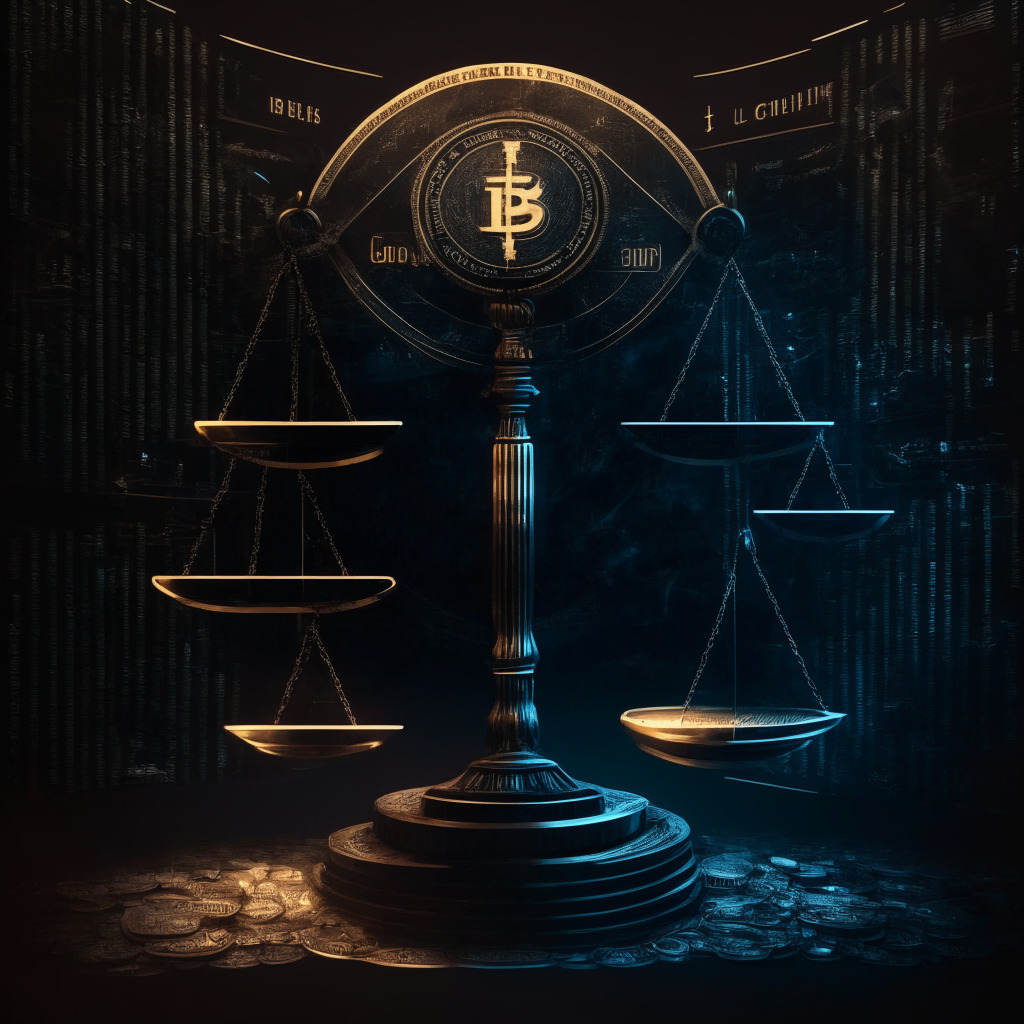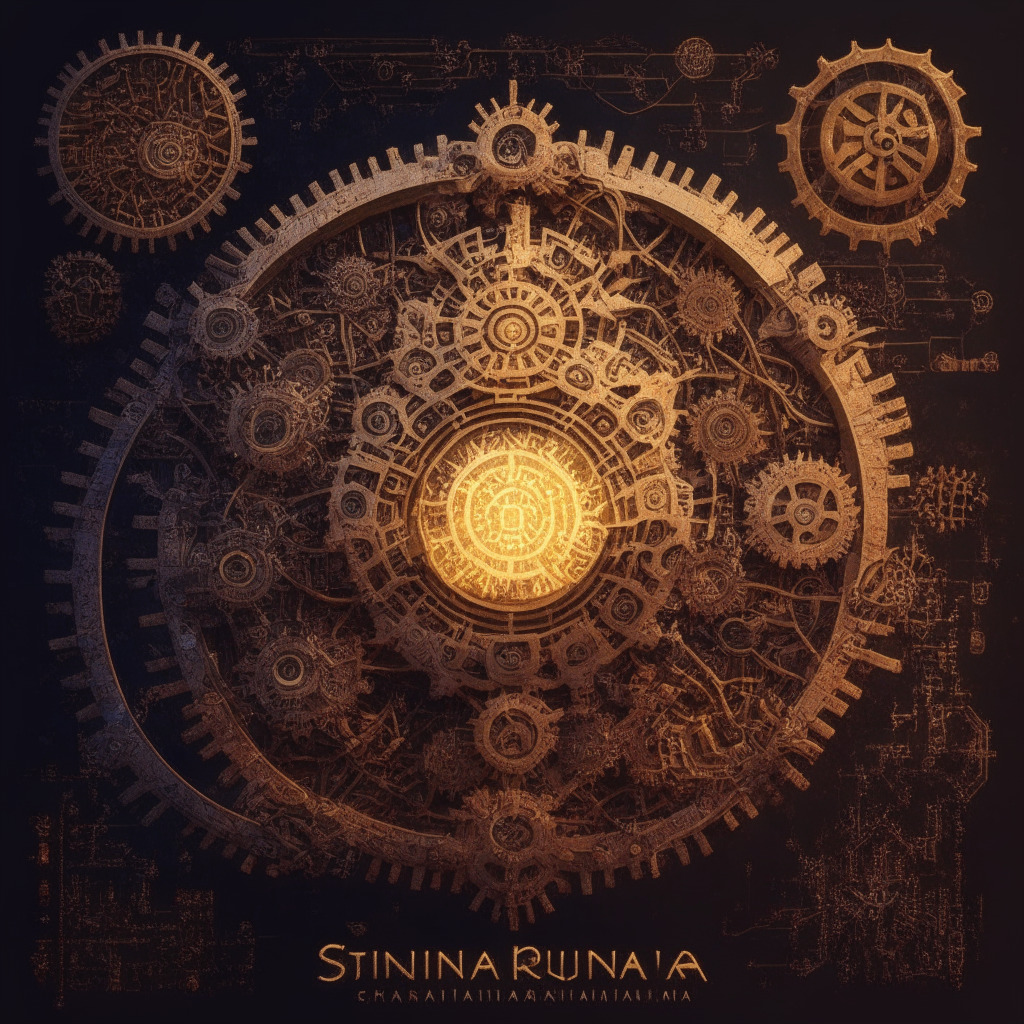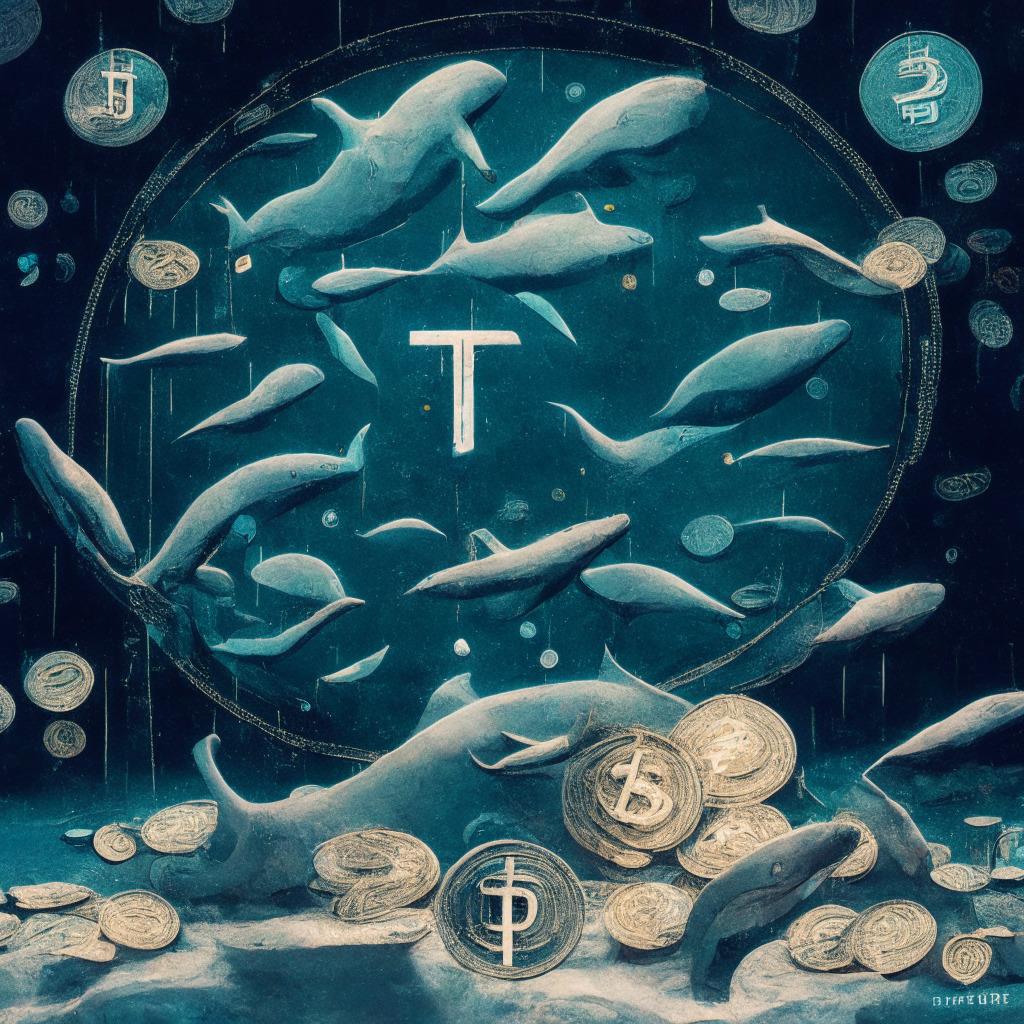Cypher, a decentralized exchange on the Solana blockchain, is revamping its token sale strategy following a damaging hack in August that resulted in a loss of over $1 million assets. The forthcoming sale aims to recoup losses and compensate depositors, largely by issuing a debt token that may enable recovery of investors’ financial losses as the protocol grows.
Search Results for: Origin Protocol
Tornado Cash Founders Charged: A Blow for Privacy or Triumph for Law Enforcement?
“Roman Storm and Roman Semenov, key figures of Tornado Cash, are facing charges for helping North Korea’s Lazarus Group launder over $1 billion via a privacy mixer. This incident sparks debate on blockchain privacy protections being exploited by criminals versus the potential shortfalls of legal jurisdiction in regulating such abuses.”
Atomic Wallet Hack 2023: Unravelling the Crypto Security Dilemma Amid Rising Concerns
“The Atomic Wallet incident resulted in losses of a considerable $100 million, with recent accusations implying a Ukrainian group’s involvement. The breach situation is vague, with potential causes ranging from malware, an internal breach, to a man-in-the-middle attack. This highlights the crypto industry’s insecurity and the need for comprehensive security measures and regulation.”
Navigating the Crypto Legal Labyrinth: The Case of FTX Founder Sam Bankman-Fried
Sam Bankman-Fried, the embattled FTX founder, has been confined in the Metropolitan Detention Center amidst concerns about cryptocurrency regulations. Bankman-Fried is alleged to have misused blockchain technology, leading to an urgent need for better safeguards. His case raises questions about how to develop protocols that protect cryptocurrency users while also ensuring legal defense facilities.
Landmark Ripple Ruling Reignites Debate Over Crypto Regulations & Financial Autonomy
Judge Analisa Torres gives green signal to U.S. Securities and Exchange Commission (SEC) to challenge her ruling that Ripple’s XRP isn’t breaching security laws. This move spotlight discussion about crypto regulations and the governance of digital assets by conventional financial laws.
Investigation on Worldcoin’s Data Privacy – A Closer Look into the Argentinean Scrutiny
Argentina’s Agency for Access to Public Information is investigating Worldcoin’s data privacy methods. The project, backed by OpenAI originator Sam Altman, bestows a digital ID on users through eye-scanning orbs which has raised concerns over infringement of rights.
Stablecoin Surge: Circle CEO Advocates for Digital Money Revolution and Its Impacts on Global Economy
Jeremy Allaire, CEO of Circle, highlights the need for fast progression of digital dollar and stablecoin development to preserve the vitality of the US dollar. In context of rising crypto adoption, he implies digital currencies potentially shaping future global commerce and payment protocols.
Navigating the NFT Dip: DeGods Defies Market Trends and Plans Expansion Amid Declining NFT Volume
Despite a 50% drop in overall NFT trading volume since January, DeGods, a PFP project, shows resilience with a 197% surge in trading volume to about $2.5 million. It coincides with the purchase of 158 DeGods, placing DeGods at the top of OpenSea’s leaderboard. However, DeGods’ floor price declined during this sales burst, suggesting fluctuating NFT sales trends. DeGods recently announced “Season III” which will introduce 20,000 new artworks and renew unattractive traits, initiating an intriguing wave in the NFT market.
Navigating Crypto Uncertainty: Mango Markets, Blockchain Dilemmas and Regulatory Challenges
The article discusses challenges facing blockchain-based trading platforms like Mango Markets, highlighting the financial struggles after a suspected exploit costing $100 million. It delves into the issues of transparency, governance, legal costs, and asset liquidity in times of crisis in the context of Decentralized Finance (DeFi) platforms.
Centralization vs Decentralization: The Battle for our Digital Existence
“In an era where digital advancement accelerates, centralized platforms like Twitter, now “X”, threaten user safety, privacy, and control. They replicate China’s WeChat convenience, but also its control over autonomy and data. However, blockchain and cryptography offer routes towards decentralized, user-controlled digital existence.”
Shiba Inu Sheds Meme-coin Label through Blockchain Digital Identity Integration
“Shiba Inu developers plan to integrate digital identity services into all platform applications, enhancing credibility and attracting serious investors. Shifting from a meme coin to a strong blockchain contender, Shiba Inu aims to increase data protection and user control over personal information, thereby enhancing community trust and government respect.”
Navigating the Tempest: The SEC, Richard Heart, and Allegations of Crypto Deception
The U.S. Securities and Exchange Commission (SEC) is pressing charges against Richard Heart, the backer of projects Hex, PulseChain and PulseX, accusing him of fraudulent practices. Heart allegedly recycled investment funds during Hex’s inception phase, effectively inflating initial investment, attracting more victims, and misleading investors with a fictitious “staking” program. This serves as a warning to evaluate the underlying technology and financial models of investment targets.
Abracadabra’s Abrupt Solution: 200% Interest Hike and Its Mixed Reactions in Crypto Community
“Abracadabra Money, a cross-blockchain lending platform, proposes a rate hike to counterbalance its CRV exposure risks by increasing its outstanding loan interest rate by 200%. This is in response to recent exploits that exposed Abracadabra to significant CRV risk, leading to a liquidity crisis.”
The Allure and Peril of Investing in Meme Coins in the Uncharted Base Blockchain
Cryptocurrency enthusiasts continue to invest in the emerging Base blockchain, developed by Coinbase, despite it not being officially open to the public. Yet, despite its potential, there’s been a harsh reality of scams and empty promises. Investors are lured by the opportunity of striking gold in the meme-coin market, but often end up unknowingly buying worthless tokens. The future of Base is therefore uncertain.
Revitalizing the IoT Ecosystem: IOTA20’s Potential & Challenges in the Crypto Market
IOTA20 token brings new vigor to the IoT-focused crypto project ecosystem, offering impressive returns for investors. The token, launched at a relatively low rate, encourages community longevity with the stake-to-earn concept. However, technological complexities and governance issues may pose challenges. Despite risks, it emerges as a promising road for widespread adoption.
The Curious Case of Curve Finance’s $5.4M Recovery: Triumph Amid Disaster or a Stumbling Block?
An ethical hacker, known as “c0ffeebabe.eth”, has recovered roughly $5.4 million for DeFi protocol Curve Finance following a devastating hack. Despite this, concerns around fraudulent schemes and market instability have risen post-recovery, raising questions about Curve Finance’s future.
Unmasking Worldcoin: The Human-AI Interface and the Quest for Proof-of-Personhood
Worldcoin, a new crypto project, operates on the principle of proof-of-unique-personhood to prevent deep-fake bots. Despite rapid engagement, concerns about potential Orwellian surveillance and exposure of sensitive biometric data have arisen. Advocates argue that the collected data is converted to untraceable hash codes and no raw human data is stored. Ethereum founder Vitalik Buterin underscored the risk of centralized models not fully safeguarding data.
From Memecoin to Contender: The Remarkable Evolution of SHIB and the Launch of Shibarium
“SHIB, once a memecoin, is becoming a substantial blockchain contender with the launch of Shibarium, a layer 2 network. Shibarium promises potential price jumps for its tokens due to increased demand. It aims to solve scaling and data challenges by consolidating transactions, thereby reducing fees.”
Cross-Chain Token Standard: A New Frontier in Cryptocurrency Security or a Potential Pitfall?
“Connext and Alchemix have launched a new cross-chain token standard ‘xERC-20’ designed to enhance security and limit bridge exploit losses. This standard allows token issuers to maintain a record of bridges and control the number of tokens each bridge can mint, aiming to protect end-users from suffering losses. However, it doesn’t escape criticisms related to bridge security and the differentiation of ‘official’ and ‘unofficial’ tokens.”
Navigating Blockchain Security: Unpacking the Conic Finance Exploit and the Path Forward
The decentralized finance platform, Conic Finance, was recently exploited for $3.26 million in ETH via a single transaction. This incident highlights ongoing concerns about blockchain security and emphasizes the need for more sophisticated protection measures even as blockchain contracts continue to innovate and evolve.
Bridging the Blockchain Gap: Axelar’s Ambitious Project with Microsoft’s Azure Cloud Structure
“Axelar is working on constructing a blockchain-anchored tool to bridge the gap between businesses, consumers, and decentralized applications using Microsoft’s Azure cloud structure. This potentially allows easier interoperability across different blockchain landscapes and automation of multichain deployments for Web3 products.”
Unveiling the Future of Blockchain: Sega’s Pause, Bitfinex’s Recovery, DAO Halts and Innovations in Bitcoin’s Lightning Network
“Sega withdraws from blockchain gaming to avoid content devaluation. Bitfinex recovers more stolen assets from the 2016 hack. BarnBridge DAO halts all activities due to SEC’s investigation. Lightning Labs introduces tools for AI and Lighting developers. Moreover, AFME calls for DeFi’s inclusion in MiCA regulatory framework.”
Unraveling Shibarium: The Next Big Step for Blockchain Gaming & Metaverse Applications
“Shibarium, a highly anticipated layer 2 blockchain, is set to go live. Designed to alleviate congestion and reduce scaling issues, it will consolidate multiple off-chain transactions into one ‘layer 1’ transaction. Shibarium has tested well, with around 20 million transactions from approximately 16 million wallets. Emphasizing gaming and metaverse applications, Shibarium could be pivotal for the Shiba Inu meme coin’s evolution.”
Exploring the Volatility in Micro-Cap Cryptocurrency Markets During Major Market Calm
Over the Independence Day holiday in the US, Bitcoin and Ether maintained their impressive positions while the overall crypto market was relatively calm. The focus is on micro-cap cryptocurrency markets where volatility is unending, and traders are eager to find the ‘next big thing’. Coins in focus include Ksi Coin, Pepe 2.0 and Precipitate which have seen impressive fluctuations recently.
Coinbase’s Bold Plan: Redefining ACH Deposits with Blockchain-Based Settlements
Coinbase unveils a plan to redefine traditional Automated Clearing House (ACH) deposits by replacing them with blockchain-based stablecoin settlements. Benefiting from faster confirmation times, increased security, cost savings, and reduced price volatility, it aims to make financial transactions efficient, globally, while aligning consumer rights and security.
GPU Shortage as a Catalyst for Web3: How Decentralized Infrastructure Networks Benefit AI Startups
The GPU shortage could accelerate the adoption of Web3 by mainstream thanks to decentralized physical infrastructure networks (DePIN). Protocols like Akash, enabling GPU leasing to AI start-ups, and Arweave, offering permanent data storage, could help alleviate resource issues. DePIN could provide inexpensive, reliable infrastructure for startups, shielding them from AI threats and offering advantages over Web2.
Leveraging Solana’s SOL for High Returns: The Rise and Risks of Liquid Staking Tokens
Crypto traders are leveraging the Solana blockchain to potentially yield high returns. This is done by staking SOL tokens, obtaining mSOL, and using mSOL as collateral to borrow SOL. Drift Protocol introduced “Super staking”, simplifying this process and offering potential annualized returns up to 10%. However, this method, while offering high-yield opportunities, also carries risks of rapid losses and potential liquidation.
Reviving Terra Luna Classic: Six Samurai’s Ambitious Q3 Spend Proposal & Ecosystem Impact
The Terra Allies’ Six Samurai team aims to revive the Terra Luna Classic (LUNC) ecosystem with a comprehensive Q3 plan and a $116,000 budget. Focusing on crucial milestones like migrating to Columbus-6 and listing Terra Classic on Keplr’s Web Interface, the team demonstrates dedication to innovation in the blockchain space.
Dissecting Bitcoin’s Scaling Debate: Intrinsic Problem or Misunderstood Theory?
Bitcoin Policy Institute researchers dispute a paper’s claim of Bitcoin’s limited adoption due to scaling problems, arguing its authors misunderstand Bitcoin consensus achievement and overlook existing scaling solutions. They emphasize Bitcoin’s scalability through off-chain payments, rather than increasing base-layer throughput.
Crypto Mining as Money Laundering Tool: Risks and Solutions for a Safer Ecosystem
The Lazarus Group, a North Korean hacking group, has been found using stolen cryptocurrencies to mine “clean” coins and launder them through hashing rental and cloud mining services. Blockchain forensic firm Chainalysis reports a rise in ransomware wallets sending funds to mining pools, possibly for money laundering purposes. Ensuring mining pools and hashing services implement rigorous wallet screening, including KYC protocols, could help prevent exploitation of mining for money laundering.
Tether’s Slight Depegging and AAVE’s Curve Freeze: Analyzing the Impact on Stablecoin Markets
Tether (USDT) experienced a slight depegging from its 1:1 ratio with the US dollar, coinciding with AAVE’s decision to freeze Curve (CRV) use as collateral for loans. This prompted whales and investors to capitalize on arbitrage opportunities, leading to Tether’s depegging at $0.996.
SEC’s DeFi Exchange Definition Change: Unintended Consequences and Industry Backlash
The Blockchain Association challenges the SEC’s proposed exchange definition change, arguing that it discriminates against decentralized protocols, imposes greater burdens on distributed ledger technology-based companies, and may drive innovation away from the US. The proposal raises concerns about fair notice, constitutionality, and violation of the Administrative Procedures Act.































